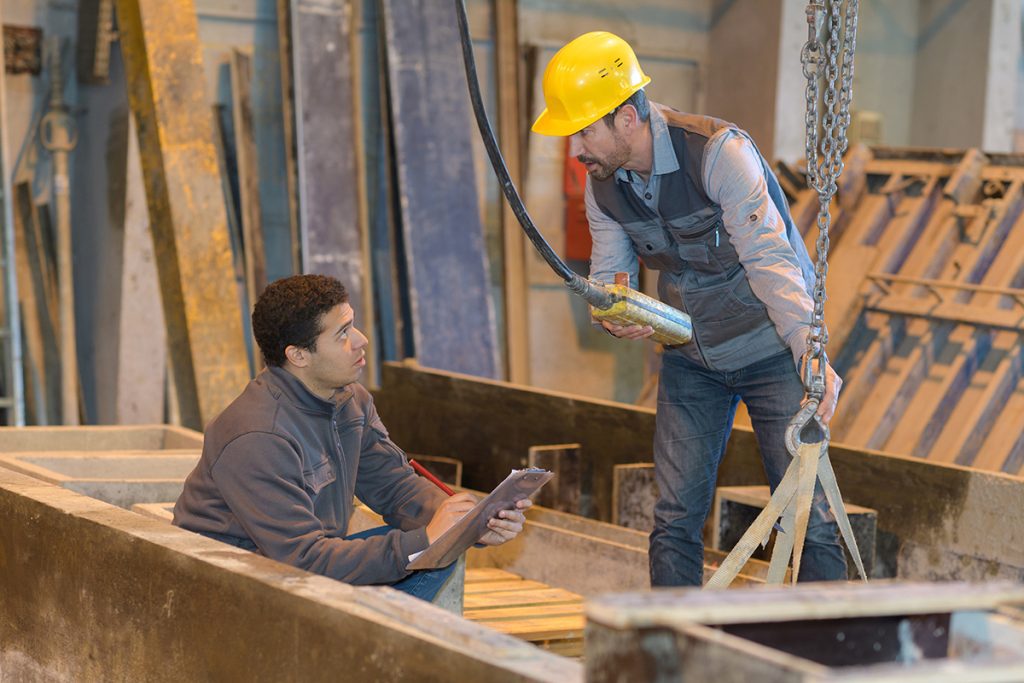Imagine a scenario where your plant’s electrical system malfunctions or an essential piece of machinery breaks down. The resulting downtime can lead to significant production losses and safety risks, primarily because industries today are powered by a blend of complex machinery and state-of-the-art electrical systems. And when one goes down, it’s essential to have industry expertise from both machinery elements to ensure proper repair and function.
The seamless operation of these facilities depends on two critical services—electrical work and millwright services. But what makes these services so crucial for your manufacturing facility’s functionality and safety? This blog sheds light on the relationship between these two essential services and how they contribute to your industrial success.
What Role Do Millwright Services Play in My Plant’s Operations?
Millwrights, or maintenance mechanics, are the unsung heroes of your facility. They install, repair, and maintain machinery using specialized tools, ensuring that your operations never come to a standstill. Their expertise extends beyond simple repairs. Millwrights are also adept at precision equipment alignment, a critical aspect of machinery in industries such as steel mills and power plants. Moreover, they often provide valuable input during the construction and new equipment installation process, offering insights based on their extensive technical knowledge.
What Exactly Does An Electrician Do In An Industrial Facility?
In an industrial setting, electricians are responsible for installing, maintaining, and repairing electrical systems. They ensure all electrical wiring and circuits are safe and up to code, preventing potential accidents and downtime. They also work on estimating electrical work for accurate budgeting and planning.
Why Should I Prioritize Electrical Work and Millwright Services?
The answer lies in the important roles that proficient electricians and millwrights play in the overall functionality of an industrial plant. Electricians, with their specialized skills, are the guardians of your plant’s electrical systems. They guarantee safe installation, maintenance, and repair of these systems, preventing potential accidents and boosting operational efficiency.
Millwrights, meanwhile, are the custodians of your heavy machinery. Their expertise in installing, maintaining, and troubleshooting these machines ensures that your operations continue without a hitch. They are adept at identifying potential problems before they escalate, averting costly downtime.
Together, these two roles form a formidable partnership that is the backbone of any successful industrial plant. By prioritizing electrical work and millwright services, you’re investing in your facility’s safety, efficiency, and longevity. This strategic focus of resources can result in significant cost savings in the long run, making it a crucial aspect of your plant’s success.
How Do I Know My Electrician Will Be Able to Work with My Millwright Services?
Determining if your electrician can collaborate successfully with millwright services involves understanding their distinct roles and skill sets. Electricians handle electrical systems’ installation, maintenance, and repair, while millwrights manage heavy machinery. Although these professions have different focus areas, they often need to work together in an industrial setting.
- Equipment Installation: Both professionals play a vital role in installing new machinery or electrical systems. Millwrights are primarily responsible for setting up the heavy machinery and ensuring it’s correctly aligned and calibrated. Meanwhile, electricians handle the wiring and electrical connections that power these machines.
- Maintenance: Regular maintenance is key to prolonging the lifespan of machinery, power tools, and electrical systems. Millwrights perform routine checks and servicing on machines to prevent breakdowns. On the other hand, electricians maintain the electrical systems, checking for any potential issues that could lead to system failure.
- Repairs: When machinery or electrical systems break down, millwrights and electricians work together to diagnose and fix the problem. Millwrights handle the mechanical aspects of the repair, while electricians tackle the electrical components.
These functions demonstrate how millwrights and electricians complement each other’s expertise. Without their combined skills and cooperation, industrial plants and factories couldn’t operate efficiently and safely. This symbiotic relationship underscores the importance of having both services in your operation.
To ensure your electrician can work effectively with millwright services, look for evidence of experience or training in both fields. This process could include seeking professionals with formal qualifications, industry certifications, or documented work experience. Asking potential service providers about their past collaborations with electrical contractors or other tradespeople in similar settings could also provide valuable insights.
How Can Electrical Work in Conjunction with Millwright Services Enhance My Plant’s Efficiency?
The collaboration between electrical work and millwright services results in a streamlined process where both the electrical and mechanical aspects of an operation work harmoniously. This synergy enhances the facility’s efficiency, reduces the risk of accidents, and ensures the longevity of machinery and other equipment. Electricians optimize the functionality of the electrical system through energy-efficient designs, regular maintenance, and timely repairs, thereby reducing operational costs and preventing costly downtime. Simultaneously, millwrights fine-tune machinery for optimal performance, conduct regular maintenance to avoid unexpected breakdowns, and strategically plan machinery installations and upgrades to ensure minimal disruption to operations.
When these two services operate harmoniously, it results in a highly efficient environment where mechanical and electrical aspects work together seamlessly. This symbiosis not only optimizes the performance of individual machines but also improves the overall workflow of the plant. The strategic collaboration of millwrights and electricians can lead to peak performance of new machinery installations and early identification of potential issues, further enhancing efficiency and productivity.
Get the Right Expertise for the Job Today!
The synergy between electrical work and millwright services is what keeps your plant running like a well-oiled machine. Both electrical work and millwright services play a pivotal role in maintaining the functionality and safety of industrial plants. By understanding their importance and how they work together, facility managers can make informed decisions regarding their maintenance and improvement strategies, thereby powering their industrial success. If you’re ready to have the best service and maintenance work possible for your industrial machinery, we can help. Contact us today to get started.

